
About Wood Street Commons
Learn Our Story, Join Our Movement
Wood Street Commons began as a response to systemic displacement and deepening housing crises in Oakland. Formed by unhoused residents and allies, we’ve built a strong, interdependent community on the principles of mutual aid, dignity, and collective care. Despite facing fires, evictions, and ongoing city-led displacement, we continue to create pathways toward long-term stability and liberation.
We provide mutual aid to unhoused communities, and do advocacy to help our unhoused relatives have a better quality of life.
We envision a future where unhoused people are decision-makers in the solutions that affect them — with access to safe shelter, wellness, and power.
As Oakland's housing crisis worsened and gentrification deepened, Wood Street residents endured rising hostility — from both the public and the state. The City and Caltrans refused to provide basic sanitation, water, or electricity, fueling stigma and danger. Then the neglect escalated into violence: in 2022, Caltrans and the City of Oakland began forcibly evicting people from the homes and community they had built over a decade. The promise used to justify the eviction was a “100% affordable” housing complex — but with affordability pegged to an Area Median Income of over $100,000, very few, if any, former Wood Street residents would ever qualify to live there.
Since the evictions, many in our community have died. Fewer have been housed. The destruction of Wood Street Commons is a stark example of how systemic violence operates — erasing poor, Black, disabled, and marginalized people under the guise of progress. Still, the spirit of Wood Street lives on in every person who continues to fight for dignity, survival, and the right to remain.
Our Team
-

John Janosko
Is a key figure associated with the Wood Street Commons in Oakland, California where he lived for 10 years .
He was a long-time resident of the Wood Street homeless encampment.He was also a significant organizer within the community, particularly at what was known as "The Commons" at Wood Street. He helped build and design communal areas, including a kitchen and a "free store."Janasko has been vocal about the experiences of those living at Wood Street, especially concerning the city of Oakland's actions regarding the encampment. He has been involved in efforts to resist displacement and advocate for the rights of the homeless community. He has experienced the displacement of the Wood street community, and has voiced his disapointment in how the situation was handled.He has emphasized that Wood Street was more than just an encampment, but a community.
-

LeaJay Harper
A Po Poet/PovertySkola, is a powerful voice for the unhoused community of Oakland. Her journey began with a decade of homelessness, triggered by the loss of her job advocating for young women and girls and the subsequent separation from her children. After overcoming substance addiction and a near-fatal overdose, she returned to her community with a renewed purpose. As a resident of Homefulness, she actively organizes and inspires others, sharing her story and supporting peers in recovery. She is a fierce advocate against encampment sweeps, highlighting the trauma inflicted on vulnerable populations, and works tirelessly towards sustainable solutions to homelessness. LeaJay uses her poetry and writing to articulate her experiences and perspectives, creating a powerful platform for social justice.
-
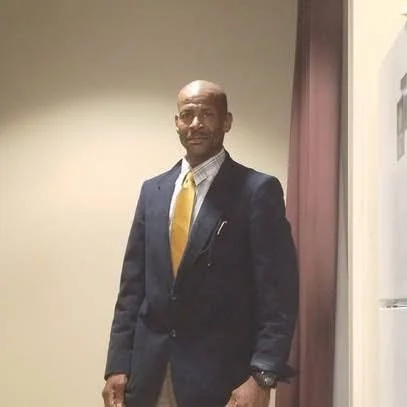
LaMonte Ford
He's like an onion. He was fed up with the homeless situation and the subhuman treatment individuals experiencing homelessness received. Finding his place at Wood Street 1707, next to his brother John Janosko, they aimed to change the narrative of homelessness. Instead of just being seen as drug addicts, he became a therapist, and together they clothed and fed others, forming Wood Street Commons. Meeting weekly, organizing, naming their group, and attending city council meetings, they worked hard to combat the dehumanizing perception of homelessness. Dressing well, speaking clearly, holding press conferences, and meeting with leaders, they continue this work to change the narrative and share their solution for permanent housing. Ask them; they have one. As long as homelessness exists, and unfortunately, it's growing, he will remain dedicated to ensuring humane conditions as a step towards permanent housing.
-

Monique French
She knows what it means to survive. After over eight years of being homeless -- two of them spent on Wood Street -- she’s endured the daily trauma of simply trying to stay alive. She’s still unhoused, still navigating recovery, and still building a life rooted in strength, clarity, and purpose. Through lived experience, Monique has gained a deep understanding of the mental, emotional, and systemic barriers that so many face -- and she’s turned that knowledge into action.
In a world that treats homelessness like a crime and recovery like a privilege, Monique stands as a voice of truth. She’s a relentless advocate, building continuum-of-care support and fighting for the systemic change we all deserve. Because recovery isn’t just personal -- it’s political. And like so many others, she knows that nothing will be handed to us. We must be organized to take it.
-

Jared Defigh
He spent many years as a "professional student" looking into a wife range of subjects in and outside the classroom. After coming to realize that staying in academic research would require him to sell his ideas through a paywall he left academia to meditate on things. Then he witnessed the world change drastically in 2016, after retreating to his aunt's home among the pear orchards in his father's hometown Jared eventually had a spiritual experience including a vision of his mother and more. After that Jared "threw himself to The Spirit" and drifted back to his home, the Bay Area. Originally living in his car, then with his dad, then Seabreeze encampment, then his dad again during the pandemic, then landing at Wood Street when his car finally gave out on the day Judge Orrick dissolved the TRO preventing the clearance beneath the highway. Jared had a lot to learn and threw himself into
learning all he could to help people. From pro se law to rescue breathing overdose victims to who owns what land, he's an avid autodidact!
-
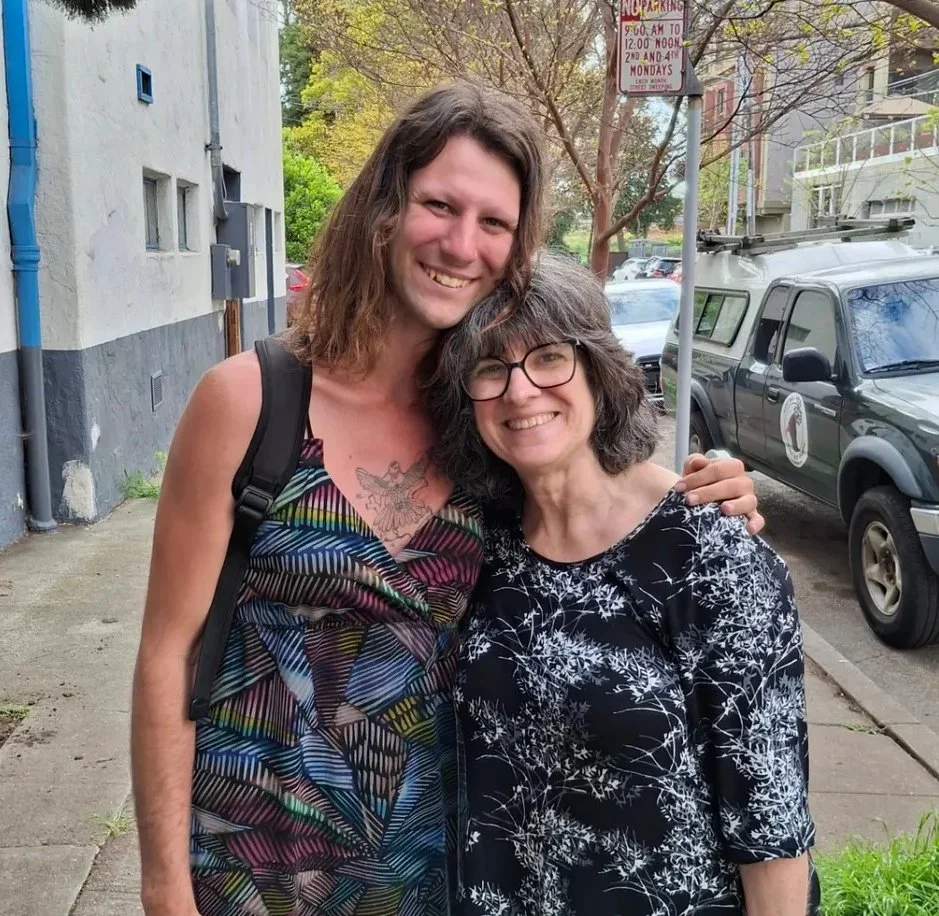
Jaz Colibri
Jaz Colibri (she/we) is a trans organizer who lived in her car on wood st for 3 years before it was demolished and its residents scattered. Despite the constant onslaught of state violence she has stayed close with her wood st family and together under the name Wood Street Commons they bring the deep community care they shared on the street itself to unhoused communities across occupied Huichin (oakland). She struggles alongside houseless communities experiencing evictions every day, helping folks keeps their homes safe from destruction by the city sweeping people with no housing to offer. She struggles alongside unhoused communities across occupied Huichin for poor people led solutions to homelessness and an end to settler colonial genocide on Turtle Island and across Mama Earth.Description goes here
-

Freeway
Unhoused in 2017 after escaping abuse and a custody battle, she and her partner were unhoused for over 8 years, finding refuge on Wood Street. Encouraged by her partner, she wrote the influential "Stand with Wood Street Letter" in response to a 2022 eviction notice, gaining 800 supporters and launching her into community organizing. Now a key leader at Wood Street Commons, her passion is providing harm reduction and trauma-informed care for people who use drugs. A graduate of the Community Health Leaders Initiative, she also writes extensively for publications like Street Spirit and POOR Magazine and is involved with the Oakland Homeless Union. She lives in Oakland with her partner of 20 years, Joel, and their pit bull, Zeus. For Narcan training inquiries, email harmreduxsaves@woodstreetcommons.org.
-

Genie Sullivan
It’s a proud queer poor person but it hasn't always been that way. Their first memory as a child was being evicted and having to sleep on the floor of where their dad was working. They just remember the fear and the feeling of needing to hide because their family wasn't supposed to be there. As people are being criminalized today and public assistance is being cut, we must hide no longer, we must make our demands known, that housing is a fundamental human right. We must not only have our demands heard, we have to organize to have our demands implemented. Because we will only ever get what we are organized to take.
-
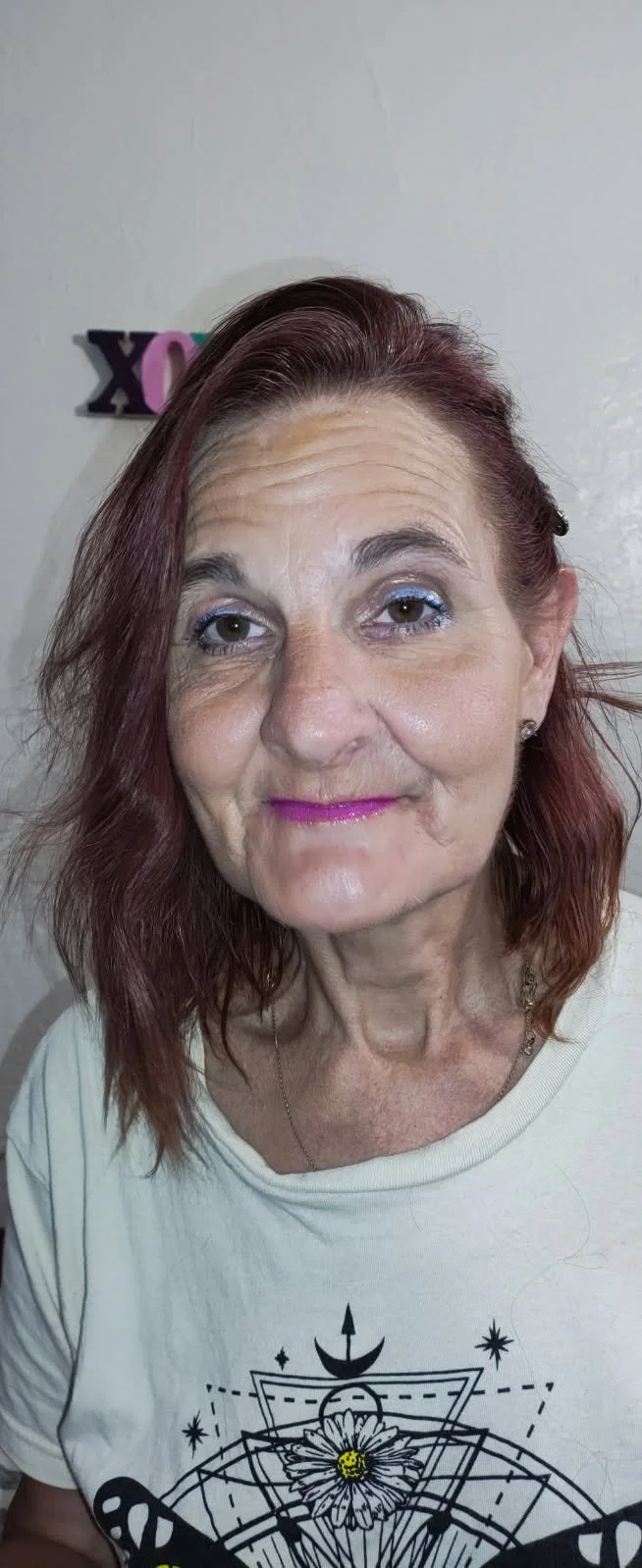
Tena Harvey
Community Organizer
-

Mona (Ramona )
Community Organizer
-
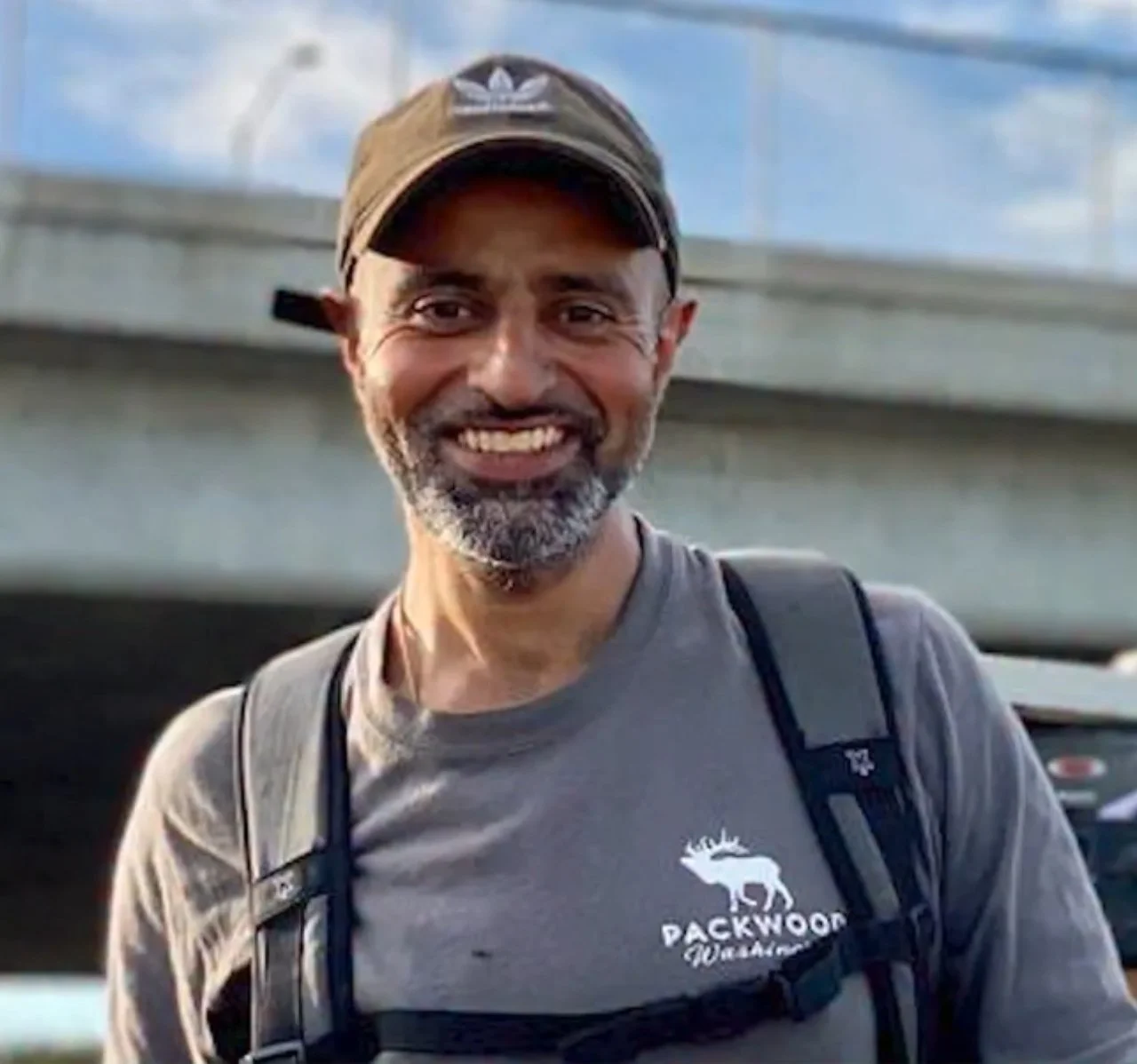
Moose
Community Organizer
-
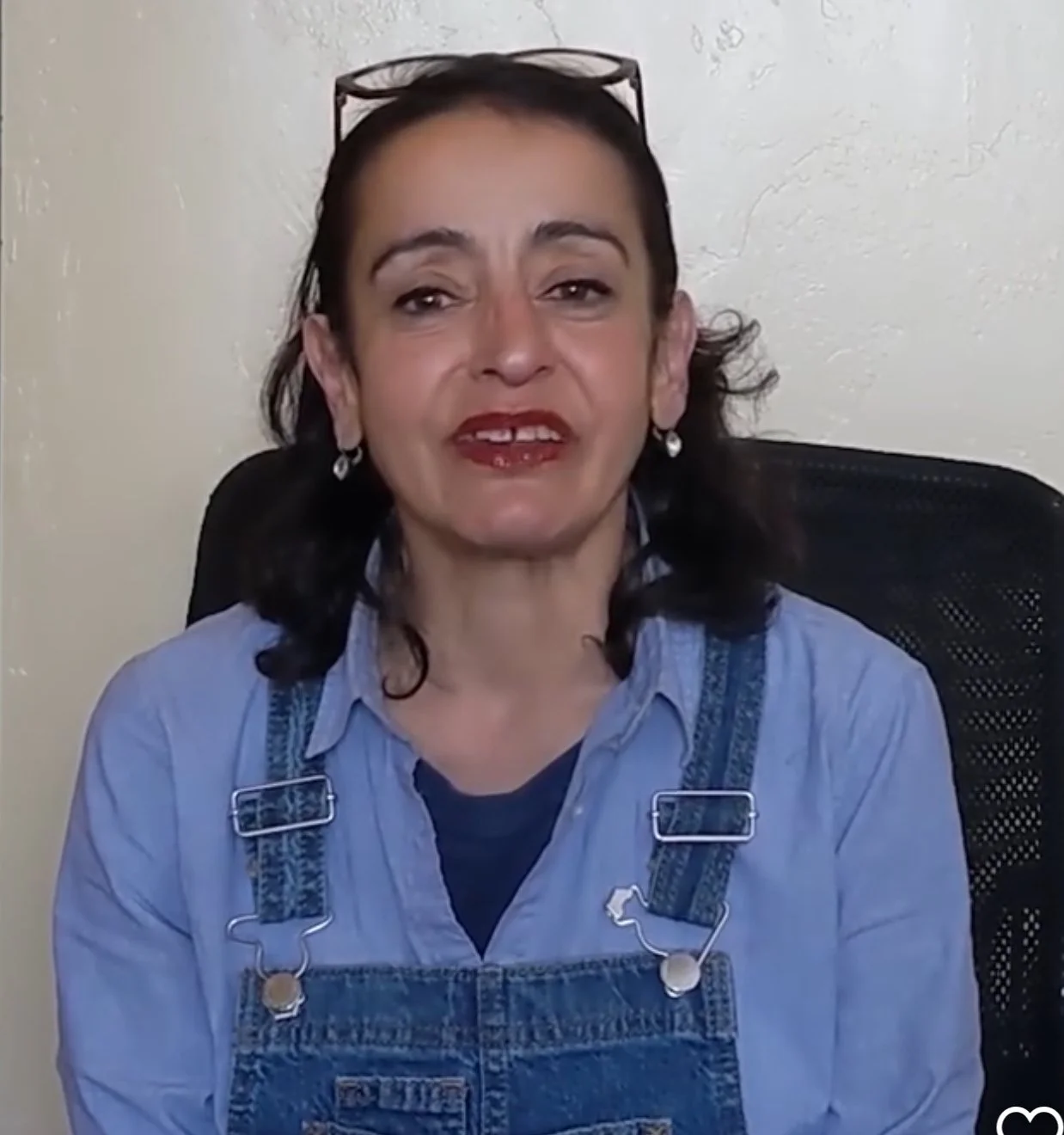
Mahnaz
Community Organizer
